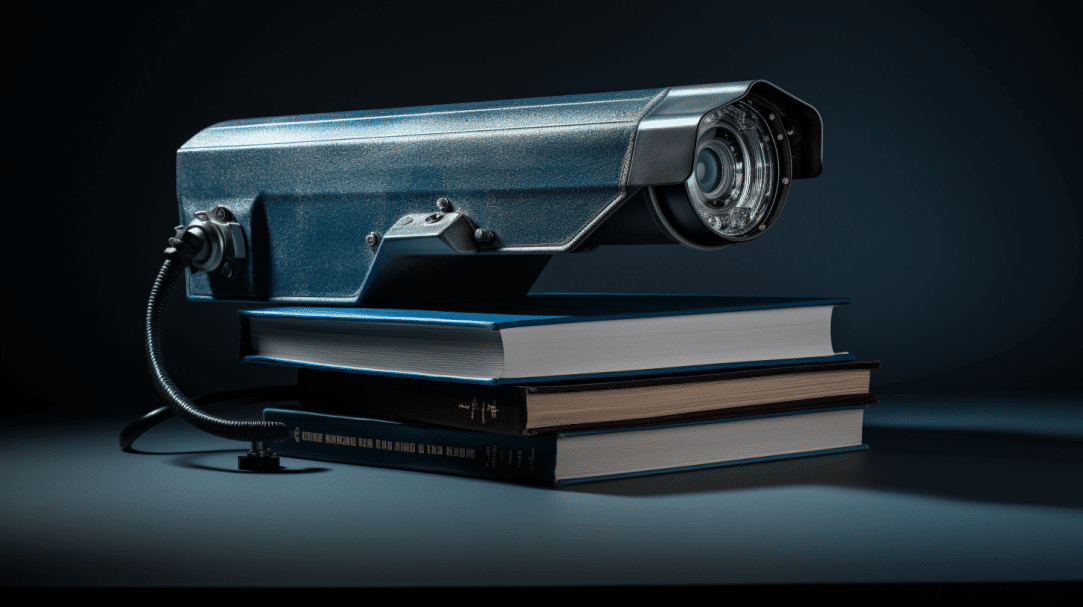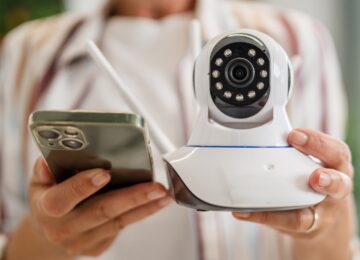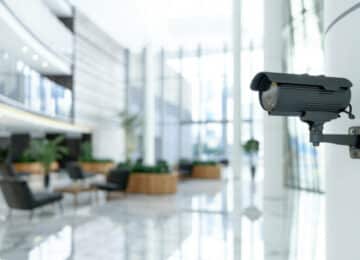What are the regulations for the use of CCTV on commercial property in the US ?

Unlike in Europe, where there’s the General Data Protection Regulation (GDPR) and various other guidelines and legislation with specific reference to the installation and operation of video surveillance systems on commercial property, in the US there is very little legal framework covering CCTV. As with most legal topics, the requirements for commercial video surveillance installations vary from state to state and the general rule of checking with your local state laws still stands.
Expectations of privacy
One aspect of US federal law that systematically applies to the use of video surveillance systems is what is referred to as expectations of privacy. Relating to the Fourth Amendment to the US Constitution, it should be noted that this is not the same as a right to privacy. However, it is generally stipulated in state laws that video surveillance cameras may not be installed and operated in places where there is a reasonable societal expectation of privacy. This covers places such as bathrooms, locker rooms, changing rooms, etc. Generally, if people are likely to undress in the area and see it as a private space, there should not be any cameras there. Other than in these private areas, the use of video surveillance is entirely lawful across all 50 states.
Notifying the presence of cameras
Here again, US practices hugely differ from those across the pond in Europe, where businesses need to display clear signs informing people that they are being filmed. In the US, businesses and institutions have historically been allowed to collect personal information without express consent or notification, and the recording of CCTV images is no exception to this. In addition, in the USA, hidden cameras are generally allowed as long as they comply with the reasonable expectations of privacy that we covered above.
As it’s entirely at the business owner’s discretion whether they install video surveillance cameras overtly (in plain sight) or covertly (hidden), with no legal barriers, it tends to come down to a decision of efficacy. Some studies have found that cameras installed in plain sight proved to be more efficient in preventing crime, as the presence of these cameras highlighted a security presence. From another perspective, it has also been found that displaying signage indicating the presence of CCTV systems helps to create a sense of safety for customers.
Workplace privacy laws
To date, there are no federal laws specifically on the use the video surveillance cameras in the workplace.
However, Section 7 of the National Labor Relations Act (NLRA) contains an important passage regarding the operation of video surveillance cameras. The NLRA states that businesses must not record their employees when they are engaged in protected activities, which include union activities.
Given the lack of federal legislation on video surveillance in the workplace, states implement their local laws on the matter. For example, Connecticut allows business owners to install hidden cameras, but they must notify their employees of the presence of these cameras.
Alongside employees’ reasonable expectations of privacy, in the event of any litigation surrounding the use of video surveillance in the workplace, the courts will also consider the legitimacy of the business purpose behind the installation and operation of the video surveillance system. Legitimate grounds include employee security and crime prevention, preventing internal theft (such as employee grazing or inventory fraud), and monitoring employee conduct.
Are there any laws on data protection relating to the use of video surveillance systems?
Once again, unlike its European counterparts which use the EU General Data Protection Regulation (GDPR), the United States does not have a singular federal law governing data protection. This means that legislation on this subject is all down to the privacy laws passed by individual states. A general “common sense” rule tends to be encouraged, recommending that businesses retain any data recorded through their video surveillance systems for only the time necessary unless instructed to do otherwise by law enforcement.
Summary
As we’ve covered, the rules and regulations surrounding video surveillance cameras are relatively few and far between in the US and, when they do apply, they tend to follow relatively simple concepts based on expectations of privacy.
As a rule of thumb, in the USA and regardless of the state, if a surveillance camera is installed in plain sight in a public place, the recording is most likely legal and unproblematic.
So, as there are no legal hoops to jump through or permits to file before installing your new video surveillance system, all that’s left is to get in touch with one of our experts here at Veesion to find out how our AI-based surveillance technology can revolutionize the security of your store, preventing shoplifting and reducing inventory shrinkage, among many other benefits.
The most popular
Related news
Discover what Veesion can do for you. Do you have one or more stores?
Our team will contact you within 48 hours





